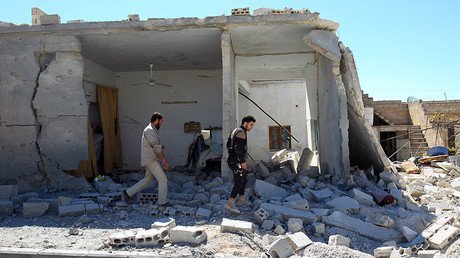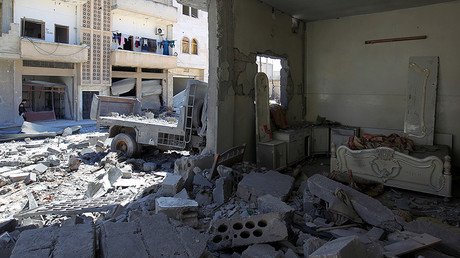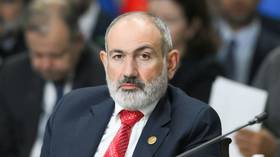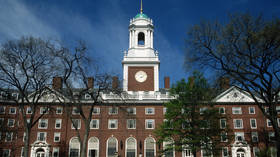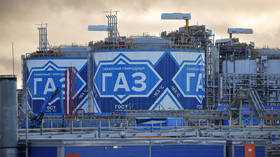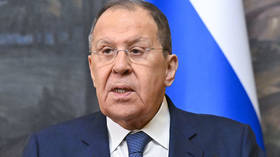‘No credibility’: Syrian govt blasts OPCW report, denies latest rebel gas attack claims
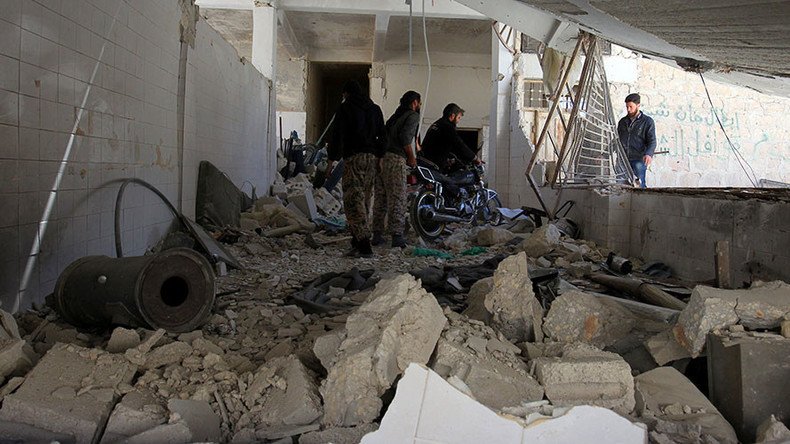
Damascus denounced a report by UN’s chemical weapons watchdog on April chemical incident in Idlib as one-sided, lacking evidence and aimed at encouraging terrorists as they lose ground. It also denied reports of deploying chlorine against rebels.
The fact-finding mission of the Organization for the Prohibition of Chemical Weapons (OPCW), tasked with investigation of the alleged use of chemical weapons in the Syrian town of Khan Sheikhoun on April 4, rejected the Syrian government’s assistance in unearthing the facts at the site of the incident and instead relied on highly questionable testimonies provided by rebels and terrorists, the Syrian Foreign Ministry said on Saturday.
An ensuing report by the OPCW therefore “comes up with a fabricated and contrived narrative that has no credibility and cannot be accepted in any manner, because it is removed from logic and is concocted by a twisted imagination that only thinks about weaving conspiracies”, the foreign ministry argued in a statement, cited by Syria’s state SANA news agency.
According to the ministry, the findings were rooted in the claims provided by “terrorists”, who were taken to Turkey from Khan Sheikhoun and bribed to testify.
READ MORE: ‘Alleged Khan Sheikhoun chemical attack would play into Assad opponents hands’
At the same time, the ministry noted that the mission turned down the proposal by Damascus to fly them on a private plane to Shayrat airbase, considered by the West as a place from which the attack originated. The allegations that the airfield was used to launch a chemical attack were repeatedly refuted by Damascus, which insists it does not possess any chemical weapons.
The ministry also called out the OPCW investigators for not caring enough to visit the actual site of the incident in Khan Sheikhoun despite the Syrian authorities’ reassurances that they are ready to cooperate in full to make the venture possible.
It further argued that the OPCW’s way of handling the probe suggests that the organization’s initial goal was not to establish the truth but to conceal the facts, that did not fit in the western narrative. The report serves “to raise the collapsing morale of terrorist groups following the achievements made by the Syrian Arab Army and its allies on the Syrian ground,” the statement read.
OPCW discredits itself by dodging proper Syria chemical attack probe – Moscow https://t.co/UtvCBV3dGl
— RT (@RT_com) May 26, 2017
Calling the presented findings misleading, the ministry urged the OPCW to come up with an impartial report into the incident free from external influences.
The OPCW report, released on Wednesday for review by the watchdog’s members, purports to confirm that sarin, a banned nerve agent, was used in the attack, that reportedly killed up to 100 civilians and injured hundreds. Although the report does not assign responsibility to any party, Washington used the publication to pin the blame on Damascus, while noting that OPCW’s Joint Investigative Mechanism (JIM) is yet to come to the conclusion.
Three days following the incident, US fired 59 Tomahawk missiles at Shayrat airbase, inflicting casualties among Syrian military civilians and material damage.
Russia, on its part, criticized the fact-checking mission for listening to only one side of the conflict, namely, to "all kinds of the Syrian armed opposition groups and NGOs,” the Russian OPCW representative, Aleksandr Shulgin, told RT. It also cast doubt on the integrity of the findings, as the report states that the organization was unable to implement a chain of custody over the samples.
In a separate statement, the Syrian military flatly rejected reports that have started circulating on Saturday that it targeted rebels in Ain Tarma in the Eastern Ghouta area with chlorine gas. Labelling the reports baseless the military stated that they were fabricated by the rebels themselves “to justify their defeats and heavy losses whenever the Syrian Army makes progress in the area.”
It further stressed that Syria could not have mounted the attack as it had disposed of all chemical weapons and “has never used toxic chemicals since the begging of the crisis,” read statement by Syrian Amry general Command, cited by SANA.
Earlier, Failaq al-Rahman rebel group operating in the area said that over 30 of its fighters displayed the symptoms of suffocation, blaming the Syrian army of using chlorine on them.
